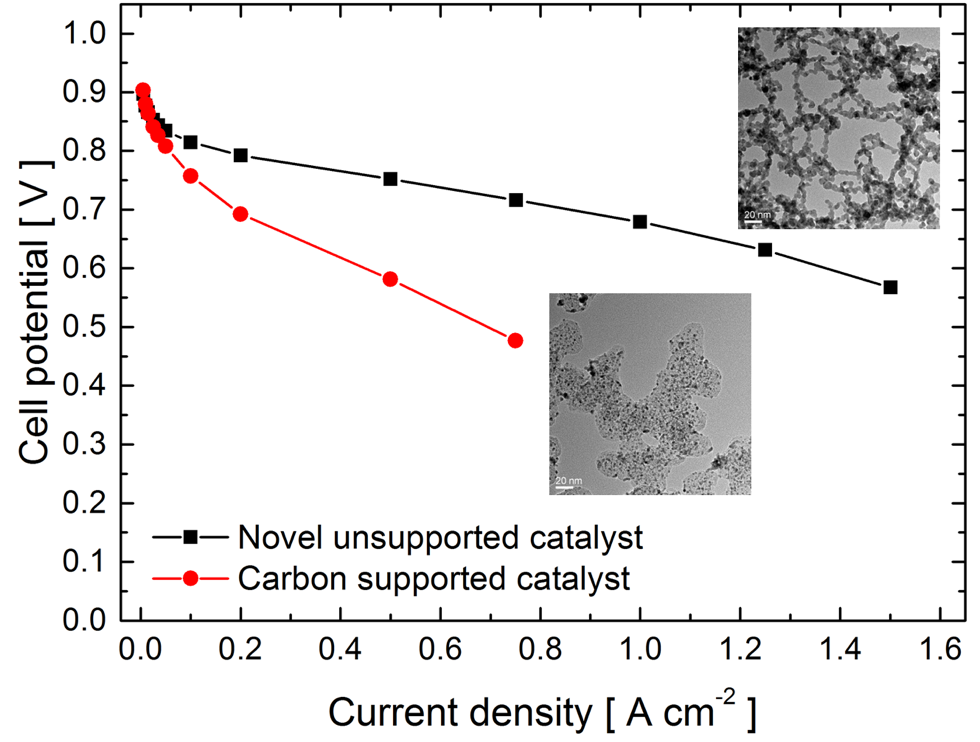Next Generation Catalysts for Polymer Electrolyte Fuel Cells
Electric vehicles powered by hydrogen polymer electrolyte fuel cells are one option to move towards a low emission transport sector. To decrease the cost of such devices, further research on the various fuel cell components is pursued in academia in industry.
At the center of a fuel cell, hydrogen and oxygen are converted to protons and water within thin catalyst layers. During fuel cell operation in automotive applications, the state-of-the art catalysts suffer from significant degradation which decreases the average lifetime. In collaboration with material researchers at the TU Dresden, Germany, a novel type of catalyst was developed that could overcome the above mentioned stability issue. In essence, the new catalyst consists of extended Pt-alloy nanowires with high surface‑to‑volume ratios. This 3-dimensional structure and the high surface area make it feasible to work without the customary support material carbon for these applications. Since the latter carbon is an important contributor to the degradation mentioned above, significant durability improvements can be expected for the novel catalyst. Indeed, latest experiments at the Paul Scherrer Institute’s Electrochemistry Laboratory demonstrate the superiority of the new material with respect to state‑of‑the art catalysts. Based on these promising findings, synthesis scale-up and additional durability tests are envisaged.
The research is being conducted within the external page Electrochemistry Laboratory (LEC) at the external page Paul Scherrer Institute (PSI), headed by the ESC Member Prof. Thomas Schmidt. Schmidt is also Professor at the Laboratory of Physical Chemistry (LPC) at ETH Zurich's Department of Chemistry and Applied Biosciences (D-CHAB).
Further information about the research can be found in Henning, S., Ishikawa, H., Kühn, L., Herranz, J., Müller, E., Eychmüller, A. and Schmidt, T. J., "Unsupported Pt-Ni Aerogels with Enhanced High Current Performance and Durability in Fuel Cell Cathodes." Angew. Chem. Int. Ed.. Accepted Author Manuscript. external page doi:10.1002/anie.201704253
